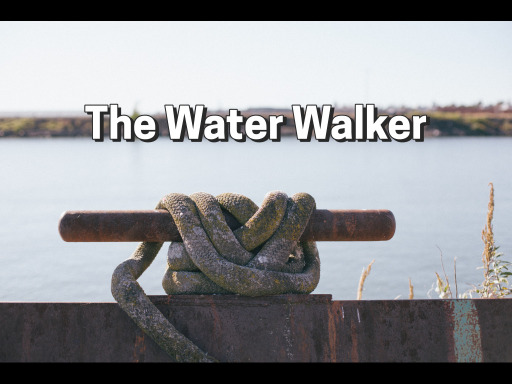The Water Walker 10-15-2016

The Calm Before the Storm
The Storm
The Invitation of Faith
7 And it came to pass after these things that his master’s wife cast longing eyes on Joseph, and she said, “Lie with me.”
The Adventure of Faith
The Adversaries of Faith
30 But when he saw that the wind was boisterous, he was afraid;
Apparently Peter had forgotten, for the moment, the wind and the waves. As his feet became accustomed to walking on the surface of the water he evidently thought of his companions in the boat, and wondered what they thought of his new-found skill. Turning his glance momentarily back to the boat, he lost sight of Jesus. At that moment he was in the trough between two waves, and when he returned his gaze again to where Jesus had been he could no longer see Him (see DA 381). All he could see was the turbulent water and the wind. In that brief instant self-satisfaction had diluted faith with pride, so to speak, and faith lost its sustaining power.
The Resource of Faith
and beginning to sink he cried out, saying, “Lord, save me!”
A fisherman all his life, Peter knew how to swim (see John 21:7). But a sea like this, in which a boat was not safe, was even less safe for a swimmer.
31 And immediately Jesus stretched out His hand and caught him, and said to him, “O you of little faith, why did you doubt?”
Our Response
“Lord, I believe; help my unbelief!”